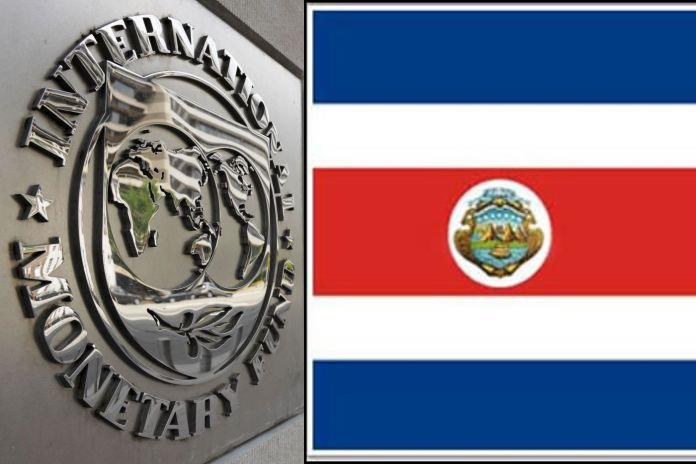Imf India Article Iv Report
article india reportThe financial positions of banks and. Directors stressed the need to focus on macro-financial and structural policies also welcoming a range of complementary initiatives taken to address high non-performing loans in public-sector banks PSBs.
 Things Made From Petroleum Jet Fuel Oil And Gas Fuel Oil
Things Made From Petroleum Jet Fuel Oil And Gas Fuel Oil
Prompt fiscal and monetary easing combined with the fiscal stimulus already in the pipeline and the return of risk appetite in financial markets have brought growth close to pre-crisis levels.

Imf india article iv report. However growth slowed to 50 percent in the April-June 2019 quarter yy a six-year low. This 2014 Article IV consultation highlights an expected slowdown of growth in India to 46 percent this fiscal year the lowest in a decade reflecting global developments and domestic supply constraints. Headline consumer price index inflation is expected to remain near double digits for the remainder of the fiscal year.
IMF Executive Board Concludes 2019 Article IV Consultation with India. The staff report and the macroeconomic projections are based on data available through October 16 2019. Listed below are items related to India.
In 2005 firms appear to have embarked on a new investment cycle underpinned by strong credit growth. Swelling capital inflows have highlighted the key policy challenges. A weak pre-crisis economy characterized by falling per capita income double-digit inflation significant governance vulnerabilities and limited buffers is grappling with multiple shocks from the COVID-19 pandemic.
The rapid aging and shrinking of Japans population has become central to macroeconomic policies and outcomes. Indias strong growth and macroeconomic stability is owed to its sound macroeconomic policies and past structural reforms. This 2006 Article IV Consultation highlights that Indias economy has continued to grow above trend with an average growth of 8 percent in the last three years.
This 2014 Article IV Consultation highlights that Indias growth has slowed markedly reflecting global developments and domestic supply constraints while inflation remains stubbornly high. 2018 Article IV Consultation-Press Release. India has been among the fastest-growing economies in the world over the past few years lifting millions out of poverty.
Headline consumer price index inflation is expected to remain near double digits for the remainder of the fiscal year. Abenomicsnow entering its seventh yearhas eased financial conditions reduced the fiscal deficit and raised employment and female labor force participation. Headline consumer price index inflation is expected to remain near double digits for the remainder of the fiscal year.
Press Call on the 2019 Article IV Consultation-Staff Report December 23 2019. The last Article IV Executive Board Consultation was on November 25 2019. August 6 2018.
This 2009 Article IV Consultation highlights that Indias medium-term growth prospects remain bright. IMF published staff report and selected issues report under the 2018 Article IV consultation with India. This 2017 Article IV Consultation highlights that Myanmars economy stabilized in 201617.
Article IV documents include but are not limited to a press release an Executive Board assessment staff report and statement by the Executive Director. And Statement by the Executive Director for India. Nonetheless reflation efforts have fallen short and under current policies the public debt-to-GDP ratio will continue.
This 2004 Article IV Consultation highlights that India is on track for another year of robust growth in 200405. Monetary operations and communications are adapting to financial globalization. This 2014 Article IV consultation highlights an expected slowdown of growth in India to 46 percent this fiscal year the lowest in a decade reflecting global developments and domestic supply constraints.
More Fiscal Transparency Would Mean Better Economic Policy in India. Supported by a strong monsoon growth rebounded to 812 percent in 200304 the highest level in more than a decade. With manufacturing expanding at more than 10 percent yy industry has joined services as an engine of growth.
Managing financial globalization and tackling the supply constraints to growth. Growth is broad based with robust consumption investment and exports. Asia and Pacific Dept.
The staff report for Indias 2008 Article IV Consultation discusses economic developments and policies. IMF Executive Board Concludes 2018 Article IV Consultation with India On July 18 2018 the Executive Board of the International Monetary Fund IMF concluded the Article IV consultation with India. IMF Article IV reports are one surveillance tool through which the IMF gives advice to individual countries on macroeconomic policy.
1 Stability-oriented macroeconomic policies and progress on structural reforms continue to bear fruit. The authorities have already taken numerous welcome measures in response to the crisis. Real output is projected to contract by 32 percent in 2020 with a weak recovery likely to keep per capita income stagnant and no.
This 2014 Article IV consultation highlights an expected slowdown of growth in India to 46 percent this fiscal year the lowest in a decade reflecting global developments and domestic supply constraints. On November 25 2019 the Executive Board of the International Monetary Fund IMF concluded the Article IV consultation 1 with India. Led by falling infrastructure and corporate investment the slowdown has generalized to other sectors of the economy.
The new government saw a challenging first year with lower-than-expected growth of 59 percent in 201617 mainly owing to weak agriculture production and exports and temporary suspension of some construction projects in Yangon. The Nigerian economy is at a critical juncture.




